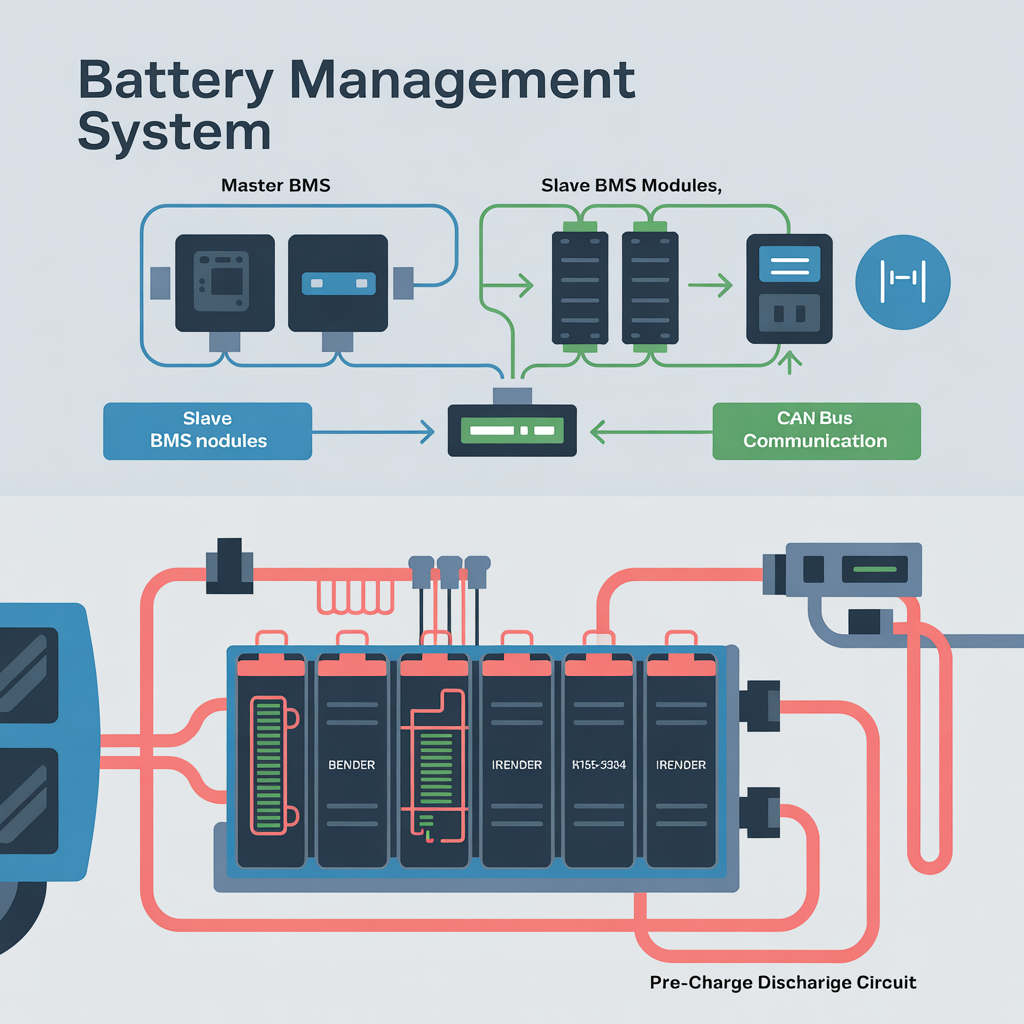The rapid adoption of electric vehicles (EVs) across the globe is transforming the landscape of the automotive industry, bringing with it a surge in demand for efficient and intelligent energy management solutions. At the heart of this transformation lies the Battery Management System (BMS)—a crucial component responsible for monitoring, controlling, and optimizing the performance, safety, and longevity of battery packs in EVs. As the push toward sustainable mobility accelerates, the global battery management systems market for electric vehicles is poised for significant expansion in the coming years.
Download PDF Brochure @ https://www.marketsandmarkets.com/pdfdownloadNew.asp?id=234498189

EV Adoption Driving Demand for Advanced Battery Management Systems
The electrification of the transportation sector is being propelled by a combination of factors including environmental regulations, government incentives, declining battery costs, and growing consumer awareness of sustainability. With the EV market witnessing exponential growth, automakers are investing heavily in battery technologies to enhance vehicle range, performance, and safety. Battery management systems play a pivotal role in achieving these objectives.
A BMS ensures that the battery operates within safe parameters by constantly monitoring voltage, current, temperature, and state-of-charge (SOC) levels. It balances individual cells to prevent overcharging or deep discharging, thereby maximizing battery life and performance. The increasing complexity of EV battery packs and the need for high energy density are making BMS more indispensable than ever.
Technological Advancements Fueling Market Growth
Technological innovations are a key driver of growth in the battery management systems market. Next-generation BMS solutions are becoming more intelligent, compact, and efficient, incorporating advanced algorithms and real-time data analytics to improve battery health diagnostics and predictive maintenance. Integration with cloud-based platforms and vehicle telematics allows for remote monitoring and updates, enabling automakers and fleet operators to optimize vehicle performance and reduce downtime.
Moreover, the emergence of wireless BMS (wBMS) is revolutionizing battery pack design. Unlike traditional wired systems, wBMS eliminates bulky wiring harnesses, reducing weight, increasing flexibility, and simplifying assembly processes. Leading EV manufacturers are exploring this innovation to streamline production and improve overall vehicle efficiency.
Stringent Safety Standards and Regulatory Frameworks
Safety remains a paramount concern in the EV industry, especially in the context of high-voltage battery systems. Regulatory authorities worldwide are implementing stringent safety standards for battery systems to ensure protection against thermal runaway, fire hazards, and system failures. These regulations mandate the integration of advanced BMS features such as fault detection, thermal management, and isolation monitoring.
As governments introduce new safety and emission norms to accelerate EV adoption, the demand for compliant and certified battery management systems is expected to rise significantly. Manufacturers are focusing on developing BMS solutions that not only meet current regulations but also anticipate future legislative requirements.
Growing Investments in EV Manufacturing and Infrastructure
Global investments in EV manufacturing and infrastructure development are further boosting the battery management systems market. Leading automakers are setting ambitious electrification targets and expanding their EV portfolios, while governments and private players are investing in charging infrastructure, battery production facilities, and EV supply chains.
Battery manufacturers are also increasing their focus on vertical integration by developing in-house BMS capabilities or partnering with BMS providers to ensure better control over battery performance and costs. These strategic initiatives are creating a robust ecosystem for the battery management systems market to thrive.
Rising Popularity of Electric Two- and Three-Wheelers
While much of the spotlight is on electric passenger cars and commercial vehicles, electric two- and three-wheelers are witnessing rapid adoption in emerging markets. Countries in Asia-Pacific, particularly India and China, are experiencing a surge in demand for electric scooters, bikes, and rickshaws due to rising fuel prices and urban air pollution concerns.
These segments require compact, cost-effective, and reliable BMS solutions tailored to smaller battery packs. As EV penetration deepens in these markets, the demand for scalable and affordable battery management systems is expected to grow substantially, offering significant opportunities for local and global BMS providers.
Software-Defined BMS: The Next Frontier
The future of the battery management systems market lies in software-driven innovation. Software-defined BMS platforms enable over-the-air updates, advanced battery analytics, and enhanced cybersecurity features, providing continuous improvement in performance and safety throughout the vehicle’s lifecycle.
This trend aligns with the broader movement toward software-defined vehicles (SDVs), where vehicle functions are increasingly controlled and enhanced through software. A software-centric approach to BMS also facilitates integration with vehicle-to-grid (V2G) systems, enabling EVs to support energy grids by feeding excess power back during peak demand.
Regional Market Dynamics
The battery management systems market for EVs is witnessing dynamic growth across regions. Asia-Pacific dominates the market due to the presence of major EV and battery manufacturers in China, South Korea, and Japan. The region benefits from strong government support, large-scale EV deployment, and rapid technological advancement.
North America and Europe are also emerging as high-growth markets, driven by regulatory mandates, the presence of automotive giants, and increasing investments in EV innovation. The European Union’s Green Deal and the U.S. Inflation Reduction Act are expected to further accelerate the adoption of EVs and related technologies, including BMS.
Explore In-Depth Semiconductor & Electronics Market Research – https://www.marketsandmarkets.com/semiconductorand-electonics-market-research-87.html
See Related Semiconductor Reports:
Lithium-ion Battery Market by Battery Type (NMC, LFP, LCO, LTO, LMO, NCA), Cell Type (Prismatic, Pouch, Cylindrical), Capacity (<50 kWh, 50-100 kWh, >100 kWh), Energy Storage (Residential, Utilities) Consumer Electronics, Medical – Global Forecast to 2033
Zinc Battery Market Size, Share, Industry Growth Analysis Report by Product Battery Type (Zinc-air, Nickel-zinc, Zinc-ion, Zinc-bromine), Rechargeability (Primary & Secondary), Application (Medical, Utilities, Automotive & Transportation, Industrial, Consumer Devices) and Region – Global Forecast to 2029
